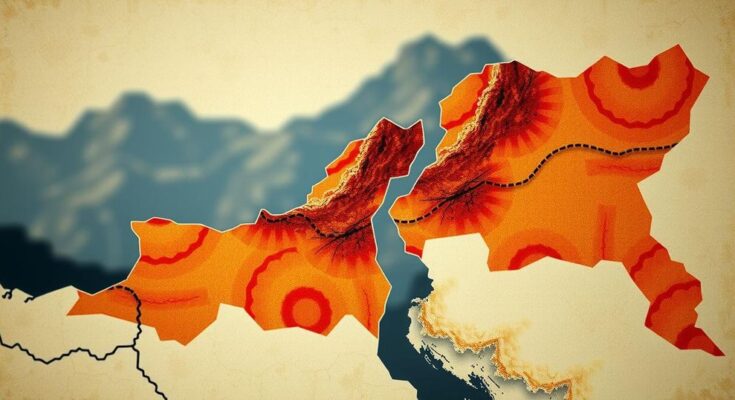M23 rebels, supported by Rwanda, have seized Bukavu, DR Congo’s second-largest city, with little resistance from government forces. This marks the second city captured by the rebels, following Goma, raising fears of broader regional conflict. The government advises residents to remain indoors as violence escalates, with looting and unrest reported throughout the city. The fall of Bukavu poses a significant challenge to the Congolese government and raises serious concerns among regional and international stakeholders.
Rwandan-backed M23 rebels have overtaken Bukavu, the second-largest city in the eastern Democratic Republic of Congo (DR Congo), and have taken control of the regional governor’s office. The rebels marched into the city with little to no opposition, and many residents welcomed them as they entered. This marks the second city, following Goma, to succumb to M23 in a matter of weeks amidst escalating violence in the resource-rich region.
The Congolese government has acknowledged the city’s fall and has advised residents to remain indoors to protect themselves from the invading forces. The United Nations and various European nations have expressed concerns that this recent offensive could lead to an extensive regional conflict, given the significant number of displaced people resulting from the fighting.
A Bukavu resident, maintaining anonymity for safety, described a chaotic situation where armed youths are looting and firing weapons indiscriminately. She mentioned that locals are unsure if the rebels are welcomed out of fear or because of the absence of government authority. Sounds of gunfire continue to echo in various parts of the city.
Prior to capturing Bukavu, the M23 had gained control of the main airport located approximately 30 kilometers north of the city. The provincial governor confirmed the rebels’ presence in the city center by Sunday, noting that Congolese troops had retreated to prevent urban conflict, resulting in a significant security void.
Reports have emerged of disturbances including a prison break and looting of food resources, highlighting the turmoil in the city. Bukavu, with a population of around two million, plays a crucial role in the local mineral trade and borders Rwanda, making it strategically important in the ongoing conflict.
This unprecedented territorial gain for the M23 rebels is a significant setback for the government of President Félix Tshisekedi. Government spokesman Patrick Muyaya accused Rwanda of violating DR Congo’s territorial integrity and supporting the rebellion, while Rwanda denies any allegations of involvement.
President Tshisekedi is urging international action against Rwandan President Paul Kagame over the unrest. Kagame has, however, downplayed such threats, insisting that Rwanda’s interests lie in maintaining national security amidst perceived threats from Congolese-based rebel groups, including the FLDR.
On Sunday, M23 troops gathered in central Bukavu, and one of their commanders, Bernard Byamungu, was seen interacting with the local population, urging government forces to surrender. The African Union has reiterated its call for the M23 to demobilize, emphasizing the dangers of escalating the conflict into a broader war.
The takeover of Bukavu by Rwandan-backed M23 rebels represents a critical escalation in the ongoing conflict in the DR Congo. With significant regional implications, the fall of this city signals a worrying trend of instability that could lead to wider conflict unless addressed. The tensions between the Congolese government and Rwanda continue to escalate, underscoring the complexity of the situation in the region.
Original Source: www.bbc.co.uk




